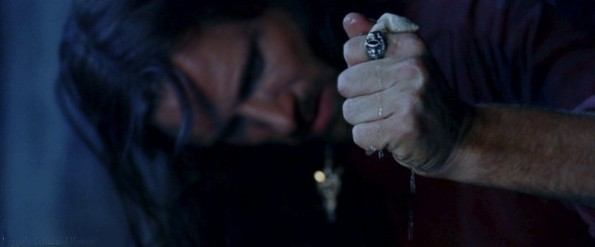 |
| Aragorn |
And so it was that Aragorn's power of healing testified that he was the rightful king of Gondor.
The kings of France justified their right to the throne by a concept called, "The Divine Right of Kings." Basically, they claimed that God had given the Bourbon line the kingship of France and so their power must not be disputed because God said it was to be this way. While the Bible does say to submit to governing authorities, it does not mean that a specific line has a right to the throne. God raises up rulers and God also deposes them (Read I-II Samuel, I-II Kings, and I-II Chronicles). Because of King Saul's disobedience, God did not allow his dynasty to continue but brought David to the throne; he began a new royal line.
Because of the "Divine Right" in France, there was a tradition that the kings had miraculous healing powers. When Louis XVI was beheaded the people rushed forward to capture some of his blood, dipping cloth into it because they thought his blood would heal their sick.
That is some extreme irony right there.
It would seems that the French no longer believed in Divine Right. However, if they really did not believe in Divine Right, then they would not believe his blood had power.
While the blood of Louis held no healing power, and Aragorn is a fictional character, there is a King who can heal. He healed thousands by the power of God while he was here on Earth. He healed the lame, the blind, the deaf, the mute, the leprous, among other diseases. He even gave life to the dead. The miracles he worked showed that he was, and is, the son of God, the King of the universe.
He was executed by the Romans for crimes he did not commit, and in dieing he was a sacrifice before God to cleanse all people from their sins. He rose from the dead and his healing work continues. He heals the scars on our hearts, breaks our addictions, and gives eternal life to those who are in his kingdom. His name is Jesus.
